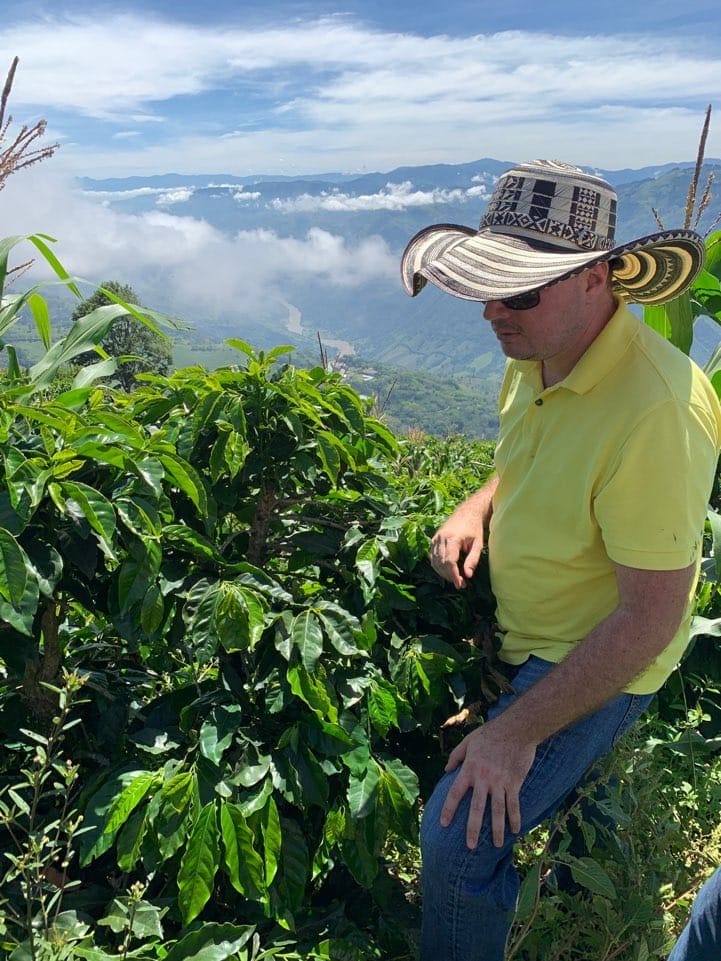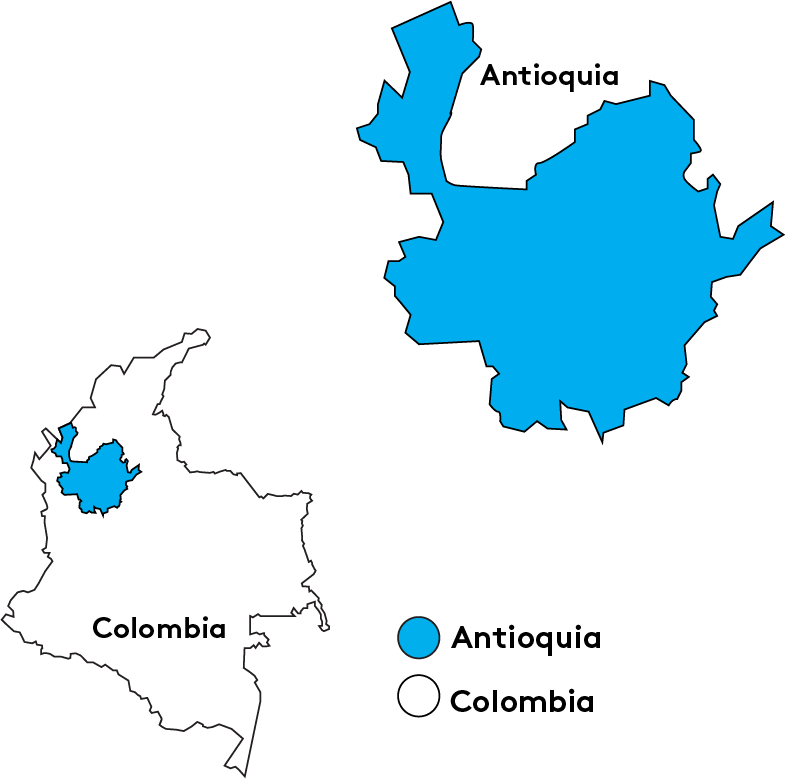El Zacatin, named after a local craft liquor manufacturer founded in the town of Concordia in the early 1920s, is a family-owned 17 hectare farm situated in the highlands of southwest Antioquia department. The farm rests high on the western slopes of the Cordillera mountains, overlooking the Cauca river valley.
Eduardo Fernandez-Restrepo is a third generation producer who became a pioneer of specialty coffee production in Concordia about 5 years ago. Fernandez-Restrepo’s family owns 3 farms in the area—Zacatin, Illusion and La Costa—all planted with coffee and a few hectares of cacao. Eduardo’s charismatic personality and interest in non-traditional coffee tree varieties connected him with like minded producers, leading to the exchange of knowledge and seeds.
Eduardo has worked carefully to source seeds for the collection of coffee varieties that he now grows. He acquired Tabi seeds through an agronimist in Antioquia with connections to Cenicafé, Colombia’s coffee research institution that developed this cultivar. His Pink Bourbon coffee came originally from a friend and fellow producer, Rodrigo Sanchez Valencia, who had discovered the variety on one of his farms in Huila. The Gesha on Eduardo’s farm was gifted from the Santa Maria farm in Buesaco, Nariño. And it was through foreign coffee merchants that he added SL-28 to El Zacatin. Originally growing these varieties on only 2 hectares of the farm, Eduardo’s production has now blossomed into growing 3500 kg of Gesha, 2000 kg of Pink Bourbon, 840 kg of SL-28, and 3000 kg of Tabi.
Eduardo adheres to three pillars in his approach to processing: efficiency, consistency, and excellence. This particular lot of Honey process Pink Bourbon from El Zacatin was selectively handpicked, sorted by hand to remove unripe cherries, and then floated for additional quality sorting during which floaters were removed. The sorted coffee is first placed into a tank for 48 hours of aerobic fermentation in cherry. The cherries are then pulped and sealed into the fermentation tanks for 48 hours of anaerobic fermentation. After this second fermentation, the coffee is then moved to raised beds and dried for 25–30 days.





